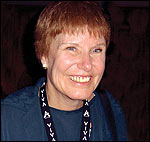
Support authors and subscribe to content
This is premium stuff. Subscribe to read the entire article.
Login if you have purchased
With more than one million lower-limb amputations performed annually, roughly 75 percent of patients experience significant pain, which can impact...
Read more
© 2024 The O&P EDGE